How to Live Without a Refrigerator
You may be wondering, “who in their right mind would want to live without a refrigerator?” There are a handful of different reasons why people choose to live life without one. Some people may simply not be able to afford one, while there are individuals out there who prefer to live off the grid, or are seeking a lifestyle that’s less dependent on the power grid.
Maybe you’re forced to be without a refrigerator because of a power outage that has been caused by a major storm that rolled through your area? Whatever your reason may be, here are tips on how to live without a refrigerator.
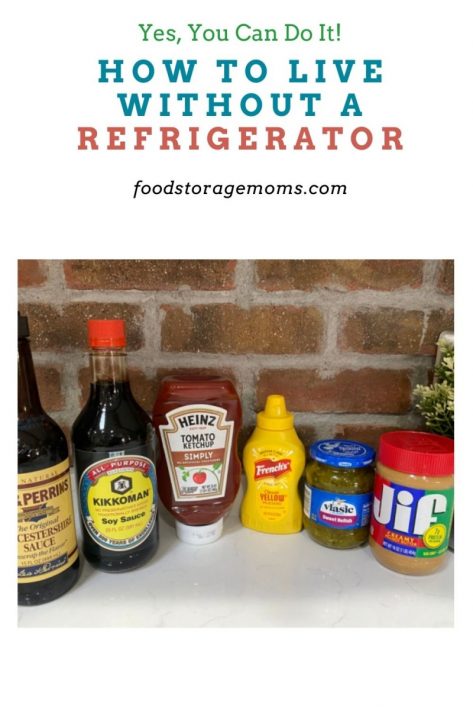
How to Live Without a Refrigerator
It may also come as a surprise to you, that most of the food items that are currently in your refrigerator don’t necessarily have to be kept there. Food that is purchased chilled at the grocery store already has about 50% less of a shelf-life than if you had purchased it from a farmer’s market on a hot summer’s day.
Believe it or not, living without a refrigerator does have its benefits. While you may not be able to enjoy a glass of ice-cold water after a hard day’s work, you could be eating healthier and fresher foods. You will also learn to make smaller portions like a true homesteader so you have less spoiled food that you’re throwing out. I’ll show you more about what I mean in a minute. Here’s more on how to live without a refrigerator.
Food Groups and Their Refrigeration Needs
Fruit
Buying your fruit from a farmer’s market without it ever being chilled will get you several more weeks out of them. But every fruit comes with a different shelf-life. Here are a few examples:
- Bananas (7 to 10 days)
- Berries (up to 7 days)
- Apples and citrus fruits (4 to 5 weeks)
- Pineapples (2 weeks)
- Pears, avocados, and papaya (10 days to 2 weeks)
- Grapes ( 3 to 5 days) FYI: will last longer if stored with their stems placed in wet sand
Vegetables and Herbs
Just like with fruit, vegetables and herbs can be stored well without refrigeration if they’ve never been chilled or washed. Below I list how long each of them will last. This is why it’s critical we have a garden, big or small. This is where I buy my garden seeds, SeedsNow. Stay tuned, I just purchased five 5-gallon buckets to use to grow some vegetables. Mark is going to drill holes in the bottom of them to let the water drain from the plant soil. I will be taking pictures to show the growth and harvest.
- Onions and potatoes (1 to 2 months, don’t store them together)
- Cabbage, winter squash, and garlic (1 month if wrapped in a towel)
- Carrots, green peppers, zucchini (about 2 weeks, cut the tops off your carrots. Peel and soak them in water if they happen to become rubbery.)
- Broccoli, cauliflower, and eggplant (1 week)
- Other vegetables (about a week)
Eggs
Farm-fresh eggs will last on your kitchen countertop for more than a week. You could also consider raising your own chickens to provide your family with eggs, or also pickling the ones you bought from a farmer.
From my friend Harry, farm fresh eggs that have not been washed will last a couple of weeks to a month or more on the counter. If they have been on the counter for a while, just test them in cool water. If they stand up but do not float, cook and eat those first. If they float, toss them.
Condiments
Most condiments will last for several months without being chilled, such as ketchup, mustard, relish, and peanut butter. I wouldn’t recommend this with mayo products though. Jams and jellies will last about 2 to 4 weeks after being opened. You can also buy individual packages of Ketchup, Mustard, Mayo, and Relish
Meat
Meat is one food group that you will have difficulty with when you’re trying to live without a refrigerator. That’s because fresh meat will not last long without being kept cold. What you can do is buy your meat from the butcher, where it’s typically already been frozen, and put in vacuum-sealed packaging. Then store it in a cooler or a freezer bag filled with ice. This should get you about a week out of your meat. Here are other ways you could get by without a refrigerator:
- Buying fresh meat daily and cooking it immediately
- Purchase canned or dried meats
- Consider drying and canning your own meat
- Cut back on your meat consumption
Dairy
Dairy is the last food group on this list that comes with a few problems as well, especially when it comes to milk. Here’s a look at a few dairy products and how long they last without refrigeration. When in doubt, throw it out, is my motto. Buy less dairy to be safe without using refrigeration, my friends.
- Yogurt: Surprisingly, even the commercial brands of yogurt can last for a couple of weeks without being kept cold, but it is still wise to buy your yogurt in smaller quantities and make sure that it’s eaten within a day or two.
- Butter: As long as the butter is kept in a cool place, it will last for about 2 weeks if stored in a Butter Bell Crock with cold water. Buying your butter in a can will get you an even longer shelf-life.
- Cheese: Hard cheeses that are vacuum-sealed or coated in wax will last you indefinitely without refrigeration. Softer cheeses will last you as well, but they will soften even more over time. For unpackaged cheese, coat it in vinegar, wrap it in aluminum, and place it inside a plastic bag. This one makes me nervous, but I did read about it. I’m not sure I could do it, just giving you the heads up. I have purchased a lot of freeze-dried cheese from Thrive Life. Just add water, it’s great for casseroles.
- Milk: Milk will last you no longer than 2 hours without being refrigerated. So you will have to purchase your milk on a daily basis, buy instant milk, or canned milk to dilute. You can also buy many shelf-stable milk products now (short shelf-life). I like to think it’s a bit like camping, we take what we will use in a short time period.
More Dairy Tips
- Get your own cow or goat for milking
- Go with powdered milk
- Buy ultra-heat treated milk (it can be stored unopened anywhere from two to six months)
Alternatives to a Fridge
You still have a few different options for keeping your food cold even when you don’t have a refrigerator. After all, it’s not like you need to completely punish yourself. Some people have discovered how to transform their current refrigerator so that it runs entirely on solar power, while others have used various gas fuels.
I’d strongly encourage you to consider building a cold storage room in your basement, and if that’s not an option and you have space in your yard for one, a root cellar. Even if all of these don’t sound like affordable methods for you, there are still a few other options.
- 5 Gallon buckets buried in the ground (Best to buy food that’s been pre-chilled)
- Zeer pot
- Swamp cooler (ideal for those living in a hotter climate)
- Canning and dehydrating your food for longer preservation
- Smoking and curing your meat
Final Word
Though it will take extra time and care, it is possible to live without a refrigerator, whatever your reason may be. You’ll not only be eating healthier, but you’ll be eating fresher foods as well. Your wallet may even thank you for it as you cut back on your throwouts, along with the savings you see on your electricity bill. Do you plan on figuring out how to live without a refrigerator? If so, let me know what your plans are. May God Bless this world, Linda.

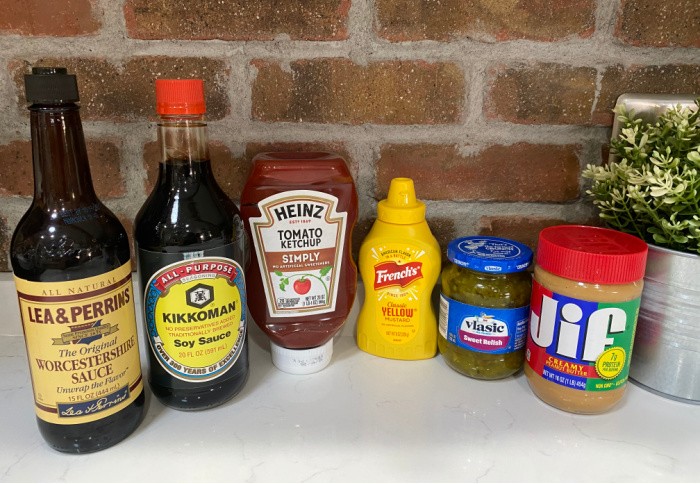

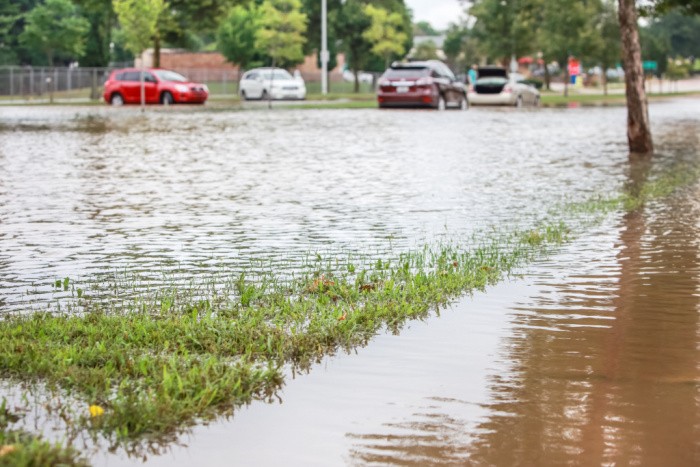

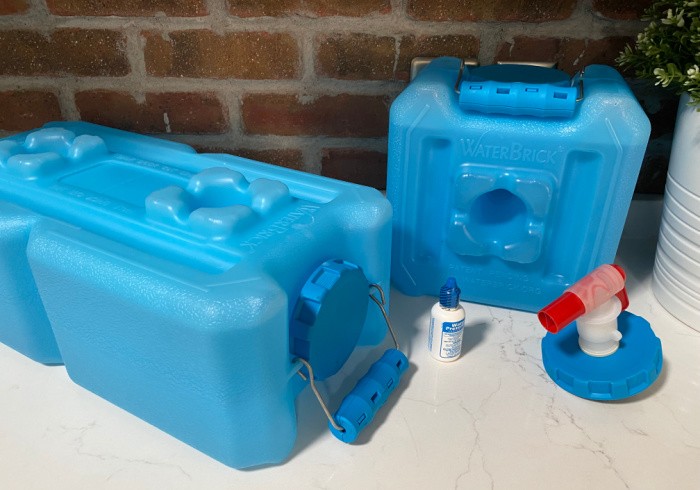
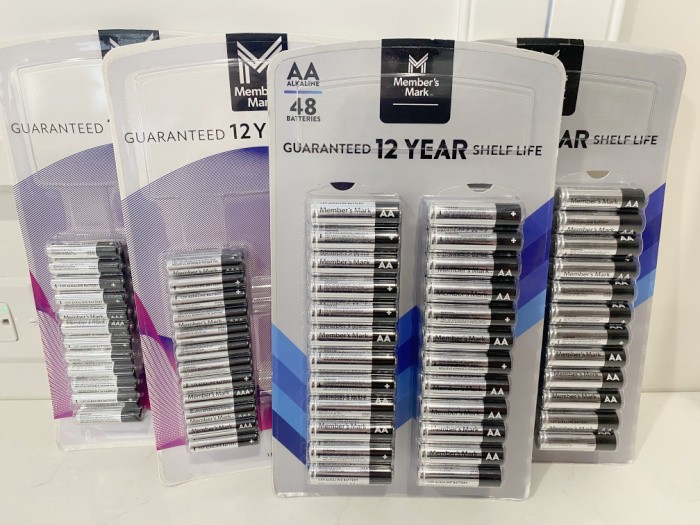
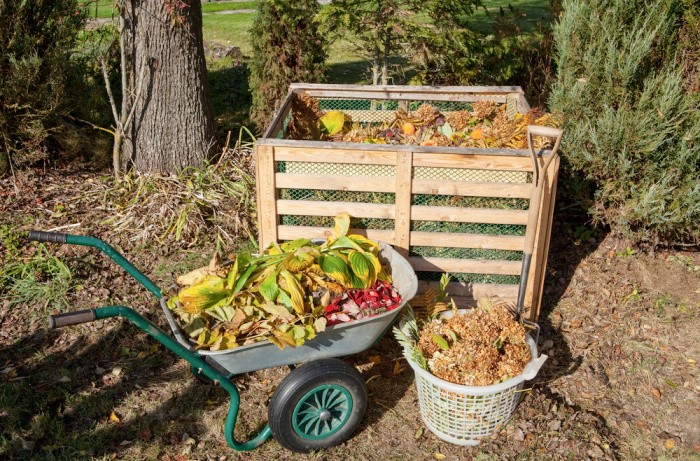

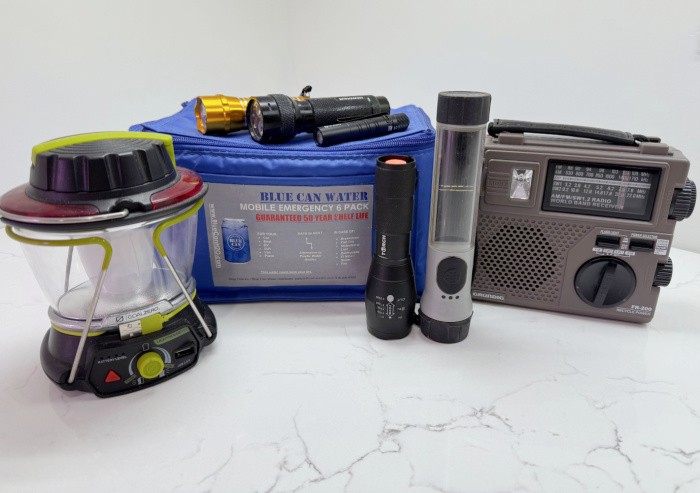
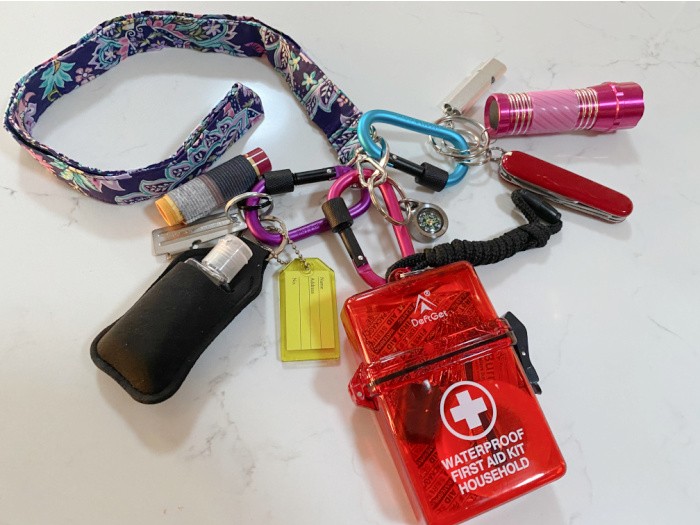











I’ve lived without a refrigerator. We had a cooler with ice for milk and a few other items. I couldn’t afford auto buy one. I was a single mom with 3 children and a minimum wage job. Also had a house payment plus utilities. It wasn’t easy, but we did make it. My mom did buy us a used refrigerator after we’d lived without one for several months. It can be done. Not preferable, but possible.
Hi Deborah, thanks for sharing your story. Here’s the deal, living without a frig is not my idea of living but some people do it. I wanted to see what items do not need refrigeration, and how we take for granted that frig sitting in the kitchen. I admire you for hanging on to your house as a single mom. Kudos to you my friend, Linda
Linda, you do what you have to do to make it through hard times. I was lucky that my Mom could help me with a fridge as well as food. What doesn’t kill us, makes us stronger.
Hi Deborah, I hear you on that. My mom was a single mom and it was tough, but she taught us we could survive anything. And we did. Thank goodness we had awesome moms to teach us, and then we taught our offspring. Life is good, Linda
Linda,
Farm fresh eggs that have not been washed will last a couple of weeks to a month or more on the counter. If they have been on the counter for a while, just test them in cool water. If they stand up but do not float, cook and eat those first. If they float, toss them.
Hi Harry, great reminder, I do not have chickens but I will add this to my post. Thank you!!! Linda
Another great article! I’d never heard of a zeer pot (but I will be trying it, that’s for sure).
On the topic of eggs, if you simply paint an egg with vegetable oil and store it in a cool place, it will last for months without refrigeration. Not weeks, MONTHS. It is a good practice, however, to crack your eggs into a separate bowl and then pour them, one at a time, into your cake batter. Safer than cracking the eggs direct into the batter. Oops! Now look at what I gotta throw out.
As regards floating eggs: An egg has an air space in its big end. Water gradually evaporates thru the shell and the air space gets bigger. A freshly laid egg will lie flat on the bottom of a bowl of water. An egg that’s a couple of weeks old will stand on end (because of the bigger air space). At a month or two, the egg will float on top of the water. If eggs are typically $2 a dozen and you suddenly see them on sale at $2 for THREE dozen, you can pretty well bet that they’re floaters. Try it and see.
Floating = old. But floating does not = spoiled. If an egg is spoiled, there will be no doubt in your mind (based on the smell) when you crack it into the frying pan. That’s why eggs are one of the few agricultural products that can be home-raised and legally sold to the public off your front porch (unlike meat). There’s virtually no danger in somebody getting poisoned. If an egg is spoiled, EVERYBODY is gonna know it and NOBODY is gonna eat it.
Hi Ron, that’s interesting I hadn’t thought about people selling eggs from their backyard being legal or illegal. I know a guy here in Southern Utah that has a frig on his porch with raw milk and fresh eggs on a table. No charge, just help yourself. There’s a can to collect money to feed the animals. Thanks for the tips on eggs. The $2 for THREE dozen, oh my gosh, floaters. Wow! Linda
Not sure how applicable this is to the topic of refrigeration, but selling agricultural produce direct from farmer to consumer reminds me of something: MILK. Here in New York State (and New York STATE is not the same as New York CITY), a dairy farmer can legally sell raw, unpasteurized milk direct to customers IF [1] the customer solicits the farmer (the farmer cannot solicit the customer) and [2] the customer brings his own container to the farm. I bought milk like that for many years when raising a family. No doubt the law varies from state to state. Here, in NYS, you can consult the County Agricultural Agent to find out the law. Of course, the farmer you cite in Utah is not SELLING raw milk, he’s giving it away . . . donations welcome . . .
Hi Ron, exactly, donations welcome. He bought this farm to raise his kids to learn how to work on a farm. I always wanted a mini hobby farm but my husband likes to golf, so we are living close to golf courses for now anyway. He does not want a farm. LOL! Linda
You might want to check out the web site called Old World Garden. They have some great info. on growing tomatoes, etc. in 5-gal. buckets. It is surprising what you can grow in them. This is wonderful for those that have a limited space to grow veggies in. Good luck with yours! Be sure to add worm compost when you plant to help everything you grow does better.
Hi Cheryl, thanks for the reminder about the worm compost. I picked up 5 large bags for my garden and my new 5-gallon buckets. I will check out that website for sure. Thanks for the tip! Linda
I had some older cousins that didn’t have a fridge so they kept their stuff in a bucket lowered
into their well. Also they would buy a roll of sausage and fry it all up and eat what they wanted and left the rest on the table till the next meal. They also had no indoor plumbing or lights. They lived to be
in their 80s or 90s. When my female cousin was the last one alive ( the other two were her brothers)
she was moved into an apartment. She had to learn a lot, like not to put a glass soda bottle in the freezer. I loved visiting her either placed she lived. I learned a great deal from them.
Hi June, oh I bet you learned a lot from them. You know it’s funny, I can’t imagine buying a sausage roll, frying it, and leaving it out for the next meal. BUT, I can remember leaving food out growing up and not thinking anything about it. Is it because we have learned about bacteria, or whatever and our bodies will not tolerate it now? I don’t know. The only thing I remember my mom saying we couldn’t take a sandwich to school if it had mayo on it. It would make us sick. So we never did. I also remember a family reunion that made everyone sick supposedly from the potato salad made with mayo that sat out on the table all day. To this day I have to have ice packed around my potato salad if I ever take one somewhere. We learn a lot from our extended family for sure. Linda
When I was growing up, my parents carried and delivered the mail to about 40 homes in the valley I grew up in. The last stop on their route was an off grid home – no electricity, no running (through pipes) water. They had a creek running through their property and they built a small building over the creek where they kept their refrigerated goods. The building was well insulated against heat as well as freezing. In the creek, they had a large box with holes drilled into it. The box was lined with wire mesh – larger openings than screens but smaller openings than chicken wire. Anyway, they always kept their dairy products in the box with the creek water running over the jars (they kept everything in mason jars). During the winter when it was naturally colder, they had a box built into the kitchen window that they were able to keep small amounts of meat, dairy, etc., handier than always going to the creek.
Something this couple did religiously, though, to keep the number of items needing refrigeration down, was to process their meat: smoked, dried, canned, etc. I remember my dad saying they never kept fresh meat. They were good friends and when dad butchered, he always took a pretty good supply of beef, chicken, pork or rabbit to this couple. They ate fresh meat for a couple of days then processed the meat for keeping.
I suppose if I had to live without refrigeration, I would hope I lived on a farm and I would process my meat, veggies and fruit and keep everything in a root cellar. Also, since I am single, I tend to cook single serve meals rather than meals that result in leftovers. About the only meals I do make with leftovers are soups and stews.
I do know there are several societies who do not have the benefit of electricity for refrigeration and they use zeer pots but those work best in drier climates than I live in!!
Hi Leanne, my biggest fear is not an EMP but the infrastructure power grids our country has. They are so fragile because they are beyond repair. They need to be replaced, which would take 10-20 years minimum. Of course, a terrorist attack could take them down in an instant. It’s interesting I just watched a video showing where the Chinese can build things so much faster than our country as far as hospitals, power grids, and so much more. It’s actually crazy. It was a YouTube by Bill Maher. Unbelievable! Linda
I saw how fast the Chinese built those new hospitals when the pandemic was declared! Frankly, I would question the safety when things are built that fast! I do, however, think that this country could speed things up a bit! There may just be a lot of over-thinking going on.
Hi Leanne, well in our country we have had some structures fall because they were not constructed properly. So who knows. The “train system” or whatever they built is amazing. My wish would be to have our country move more to solar wherever possible. It will not happen in my lifetime. I doubt the power grids will be replaced in my lifetime. Sad, but that’s my thought. It’s disappointing that with all the educating engineers we have that we can’t update our infrastructure. Oh well, I’m not in charge. LOL! Linda
Maybe in the next life . . .
Hi Ron, I know, right??? LOL! Life is good with a frig! Linda
Oh Linda,
I have agonized over the refrigeration problem. I made an icebox, but getting ice blocks in central Florida is a challenge. And if there is a hurricane or such, likely no ice would be available at all. I made an Australian Coolgardie Safe. But they work in dry climates in windy areas. I tried it in Florida and it doesn’t work in our humidity. I tried zeer pots. So now I have a 3way refrigerator on propane from an old pop up camper. But when the propane is gone, the refrigeration is gone, and the refrigerator isn’t very reliable. So much so that we don’t store anything in it and have it off right now. It might be better than nothing if we have a hurricane.
Living where you do, Linda, you should consider making a Coolgardie Safe.
It’s important because my daughter needs to keep her insulin cold, whether after a hurricane or if something bad happens.
Hi Debbie, I hear you on the medication needing to be refrigerated!! I will look into that Coolgardie Safe, you know I love hearing about new stuff! Linda
Another comment on egg storage. Eggs that have been refrigerated, need to stay refrigerated–but fresh eggs right out of the nest, that have not been chilled, are fine on the counter or wherever for as long as the store eggs last in the fridge! (Sorry, I don’t remember what the explanation was…)
Another old egg storage method is to put them in water-glass–I’d have to look up what the actual chemical name is, but I know places like Lehman’s sell it under that name (it’s a bit disconcerting when you get the jug, though, because it’s labeled as concrete sealant!) Supposedly eggs will last up to a year–maybe not for the best omelets or fried eggs, but certainly for baking, etc. Lime water is another storage method, but I’m not familiar with that one.
Wouldn’t it be nice if we all had a spring-house for storage… I remember someone my dad worked with actually had a brook that ran through their basement–I know where the house is downtown, hope the current owners appreciate what they have!
Hi Rhonda, I know people who water glass their eggs, I don’t have chickens, so I have never tried it. That spring-house sounds like a dream! I would love that! Linda
long term egg storage. There is a guy with a web site that deals with all things related to 17th and 18th century life. (Townsend). I have used one of his long term egg storage methods. I stored fresh yard eggs, unwashed for 80 days in slaked lime and water. At 80 days they didn’t taste fresh but were safe to eat. They were suppose to last up to 1 year. The purpose of storing eggs long term was to maintain a supply of eggs through the winter months when the chickens didn’t lay.
On keeping the insulin cold you can buy a cooler that plugs into a 12 volt system. You could either plug into you vehicle or use an extra 12 volt deep cycle battery to run it. I had one with a small 2.5 watt solar panel to keep the battery charged. Luckily I no longer need injectable insulin but this would work to keep it cold for your daughter.
For those that lost power because of the extreme cold weather, just put fridge an freezer outside. If its that cold it will keep fridge and freezer stuff cold also.
Hi Cheryl, so true! Great reminder, thank you! Linda
When I was a kid we didn’t have electricity (until I was 5 or 6) so we kept milk and butter in a wire basket suspended in the cold water of our spring fed cistern. We did have an ice box and got ice deliveries from the local ice plant. Meat from the game we shot or trapped was either cooked and eaten, canned, jerked, stored in the ice box, or hung in the root cellar where flies couldn’t get at it–until it could be cooked or canned etc.
We really didn’t need to store milk since we got it fresh daily from our Jersey cow, but bottling it and putting it in the cistern gave us nice cold milk year round. As I recall, not much changed when grandma got a fridge but the freezer she got was a real blessing since we could store more meat and fish.
Hi Ray, I love hearing life stories like yours. What great memories and skills you learned. I love it! Linda
Very interesting article. We’re currently in temporary housing built for short-term Airbnb stays, so it only has a tiny fridge/freezer. My son freaks out each time we bring home groceries as he’s sure there will not be enough room to put them away. It’s challenging, but very little food has gone to waste due to spoilage from sitting out. It’s winter, but the home is not very cold inside.
Here is what I’m doing to deal with this limited refrigeration situation.
1. Always have plenty of food that does not have to be refrigerated on hand, including shelf-stable foods.
2. Buy smaller containers of cold food if it’s not much more expensive.
3. For things we use a lot of, have small containers that are easier to fit into the fridge so I can divide a half gallon of almond milk into three small containers and serve the remaining two cups immediately.
4. Instead of buying tons of produce that would spoil before our next trip to the store, I buy the best quality affordable base, such as organic spaghetti cause with healthier ingredients and use that as teh base, adding fresh veggies to double the column, dilute the salt and make it tastier, plus my own spices, dried mushroom powder, and herbs. (I use an InstantPot pressure cooker, so I will on to of that add dried pasta or separately cook a spaghetti squash and put the finished sauce on that.)
5. Never let anything stay in the fridge for more than a week without using it. So, that head of purple cabbage can’t stay in there for a month as it might with a big fridge. I use most things up within a week. Leftovers need to be eaten within a day or two max and can be stored in plastic bags. I don’t like plastic for food storage, but it makes them fit around the shapes of other items.
6. As I use eggs, I tear off the empty part of the carton to make it smaller. I also take the remaining eggs out and put them around other food, carefully.
7. I take care to use up things in my freezer as it’s hard to store food if half your tiny freezer is taken up by a quarter of a Turkey that was on sale the day after Thanksgiving. It’s not as good when stored too long, anyway.
8. Try not to buy any junk food at all. This makes it hard for family members to fill up on that, and they scrounge for food to eat, eating healthy food, including leftovers and produce that is not refrigerated.
9. Make my own yogurt in quantities we can consume and store. So, I use my InstantPot for this, and refresh my culture by buying a new small container of high-quality unsweetened, unflavored yogurt with no fillers and fresh active cultures. (I do not always buy or consumer dairy or gluten as it doesn’t agree with my son and I, but when we do, this is what we do. I don’t have culturing plant milks down, but I guess it can be done, differently.)
10. Use up food the day or two before shopping. Let nothing go to waste.
11. When I come home with groceries, I serve food that’s still in the fridge and some of the almond milk and orange juice if we bought those.
12. I make a big pot of veggie soup to use up less fresh food sitting out or lingering in the fridge. I’m good at flavoring using several methods, so this is always delicious. We each have at least two big bowls that day, and I can leave it on the counter in the InstantPot without it spoiling since it’s been pressure cooked, and I don’t leave the lid off to gather bacteria. I also only use a clean spoon to get it out. If it’s not all gone within 24 hours or in the home, I use the warmer function to heat it and kill any bacteria that’s found its way in so it will last longer. I also put the last bit in containers in the fridge or freezer, so he’s handy to eat, and I point that out to my son. He loves premade food, though he knows how to cook.
13. Instead of best-refrigerated condiments, I make my own flavorings, mostly during cooking but sometimes in advance if they can tolerate sitting out. I don’t want bottles of condiments filling up the tiny fridge. It’s not time-consuming to add things while cooking, which keeps everything from tasting the same as it’s always a little different.
14. I buy smaller bottles of olive oil, so it doesn’t get rancid. I don’t think it would be with us since we use a lot of it, but I like it fresh, and Aldi sells organic olive oil that is high quality and affordable.
15. We don’t eat much meat, but we have some. This is always kept in the freezer as small fridges can be unreliable in temperature. I only have fresh meat in the fridge after it’s started thawing and needs to be put away overnight or to prevent spoilage of some while the rest thaws.
16. Eat the most perishable foods first, including strawberries and raw meat if not frozen.
17. Buy not quite ripe produce and let it ripen on the counter, so it’s perfect a few days after grocery day. Stagger the ripening.
18. Make smaller quantities of food, but simplify the process so you don’t increase your labor or time commitment.
19. Shop routinely, coordinating errands, so that extra shopping trips are not such a burden.
20. Eat foods that are most likely to spoil first, and avoid using nonperishable items the first few days after a shopping trip. As foods are eaten out of the fridge, place the most perishable items on the counter inside the fridge.
I am considering using a 5-day cooler and two bags of ice bought on grocery day to extend our refrigeration capacity to reduce our spoilage to zero. I’d have to get another one since we don’t have the one we had before. I’m not sure it’s necessary, but I’ll keep it in mind for fresh fruit and certain condiments. I would put a rack in there to keep things out of the water that melts and avoid storing anything that would go bad quickly, such as meat, dairy, lettuce, and strawberries. I expect to empty it within three to four days as the ice melts. I’d rather not do it as it will be one more thing to manage. A medium-sized cooler would probably work better for us than a large one. One concern is leakage and the weekly task of cleaning it.
I hope some of this is helpful to those considering a hybrid solution or just wanting to adapt these practices to use if they don’t refrigerate at all.
P.S. I like this method because we can’t lose much food to spoilage in a power outage. Another is that when we move to permanent housing, it will be easy to eat the fridge contents and pack the nonperishables and the hardy produce on the counter, such as winter squashes, apples, etc. Also, we can feed ourselves for at least two weeks but probably three with just our non-perishable. That may not seem like long, but we’re in an Airbnb, so we don’t have room for food storage that will last for months or longer. When I owned a roomy home, I had a massive pantry filled from top to bottom with nonperishables, and we could live for months from that if we needed to do so.
Hi Andrea, thank would be a big change going from a massive pantry to an Airbnb! Linda
Hi Andrea, that would be hard living in an Airbnb and trying to stock food for extended periods. Even the 5-day coolers aren’t that efficient. Great tips, Linda